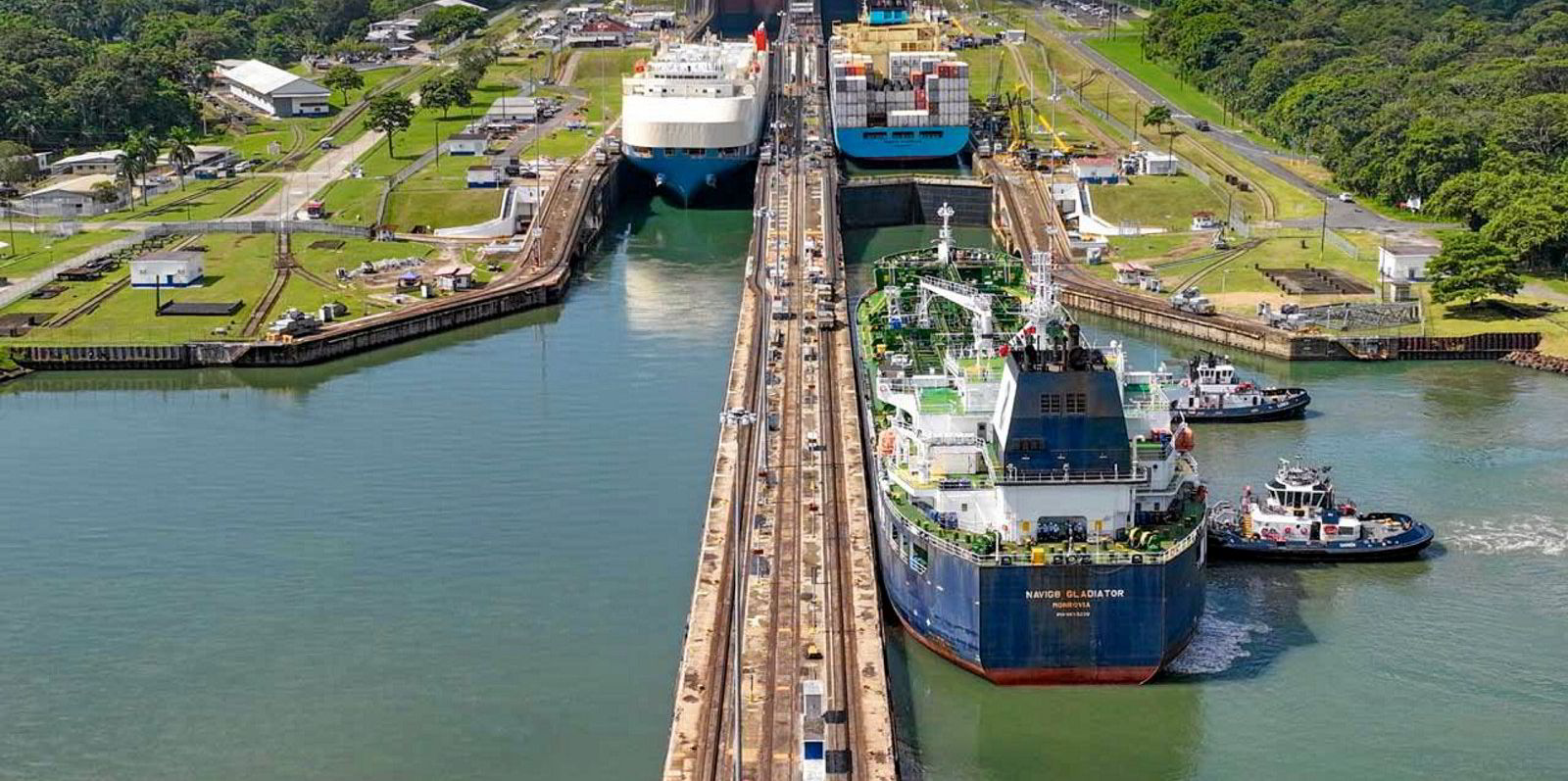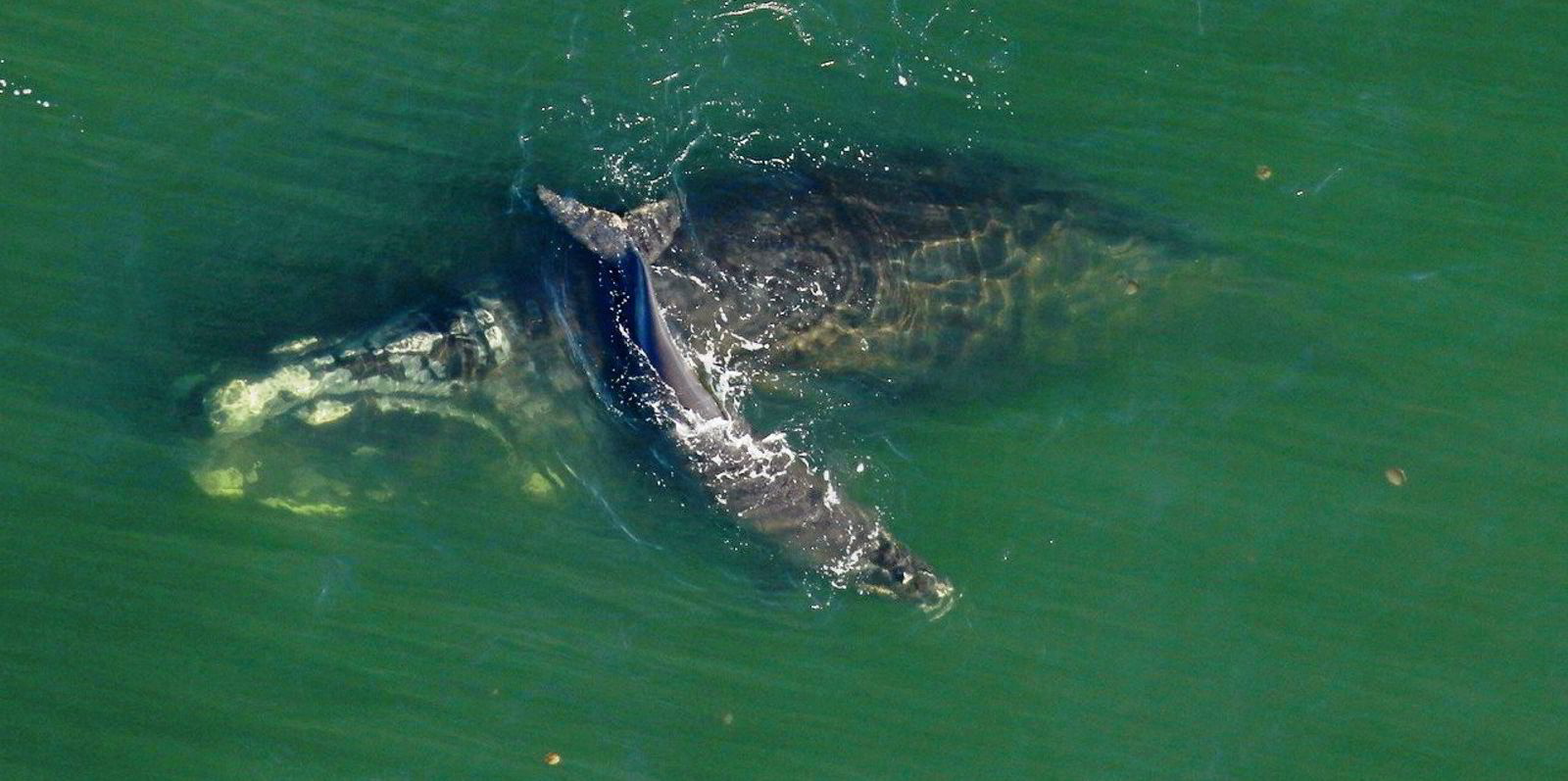In Panama, it’s supposed to be the rainy season.
Instead, the Panama Canal Authority says it has been the driest October since records began 73 years ago amid a drought caused by the weather phenomenon El Nino.
This rain shortfall has had significant consequences for shipping, and the real dry season normally starts two months from now.

This week, the Panama Canal said it is reducing the number of booking slots from the already reduced 32 per day to just 18 per day in February, and that limit will remain until further notice. In normal conditions, 36 ships pass through the canal every day.
While scientists are careful about attributing specific weather patterns to climate change, Green Seas has reported how this below-average rainfall is in line with the expected impacts of swings from drought to floods, as the new normal becomes no normal.
The canal authority said October rainfall was 41% below the usual, resulting in unprecedented low water levels in Gatun Lake.
“Therefore, with less than two months left until the end of the rainy season, the canal and the country face the challenge of the upcoming dry season with a minimum water reserve that must guarantee supply for more than 50% of the population and, at the same time, maintain the operations of the interoceanic waterway,” the government body said in its Canal Connections publication.
There is currently a backlog of 98 vessels with waiting times up to seven days, an improvement from queues that lasted up to three weeks earlier this year, but that may be because more ships are taking longer routes that avoid the canal.
The Panama Canal’s drought problem is just one way climate change is reverberating through shipping markets.
Here are more stories from TradeWinds:
______________
Panama Canal auction smashes vessel transit record as slot goes for $2.85m
Shipowners and charterers desperate to get their ships through a drought-hit Panama Canal have driven transit slot auction prices to a record.
Fearnley Securities said that on Monday, bidding for a crossing was concluded at $2.85m.
This compares with a normal booking fee of about $900,000 and beats the previous highest price of $2.6m from November last year.
Click here to read the story by Gary Dixon.
______________
Is climate change generating problems for liner shipping schedules?
The weather is emerging as the dominant factor influencing global liner schedule integrity, Ocean Network Express chief executive Jeremy Nixon says.
He said low rainfall in Latin America is directly affecting Panama Canal transits and water access levels on the Amazon.
Stronger weather systems in western and southern Africa have adversely affected port productivity and vessel turnaround times.
Click here to read the story by Ian Lewis.
______________
Russia and DP World forge venture to send container ships through the Arctic
In one of several moves to promote the Northern Sea Route for a wider range of vessels, Russia has signed a joint venture deal with a major Dubai port operator, to enhance container shipping in Arctic waters.
Russia’s Rosatom, which regulates the route, signed a cooperation agreement in June with DP World to “develop pilot container shipping between northwest Europe and East Asia using the Arctic support transport infrastructure”.
The two partners advanced their cooperation last week by formally establishing a joint venture for the purpose.
Click here to read the story by Harry Papachristou.
______________
Podcast: Meet the tech companies that are tackling wasted time, and emissions, in port
When ships spend time waiting in port, they also emit unnecessary greenhouse gases.
But technology companies focused on port-time optimisation are working to tackle this problem, recognising that wasted time equals wasted money.
The Green Seas podcast travelled virtually to Rotterdam, where two of these firms were founded.




